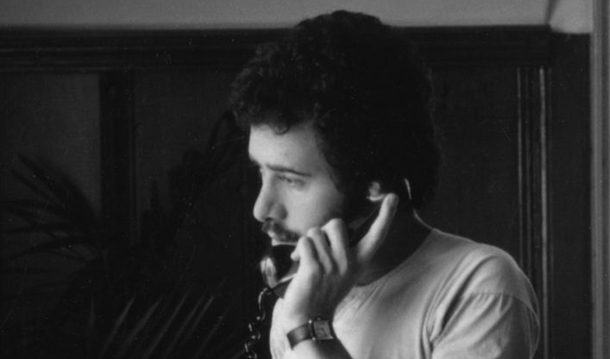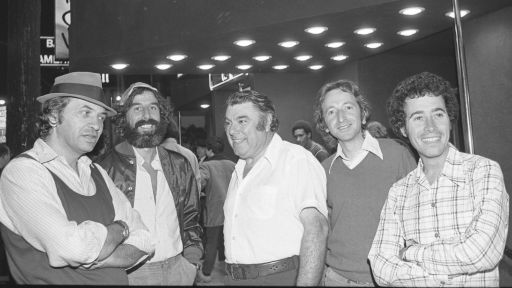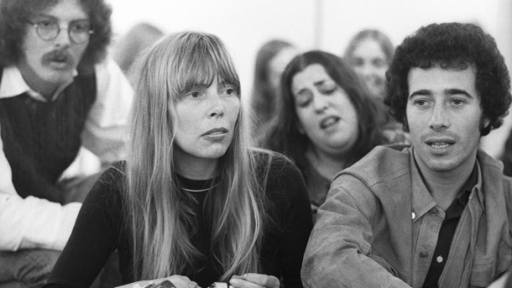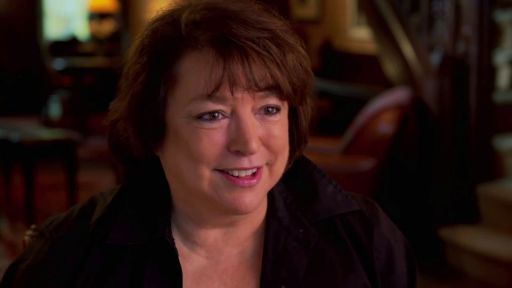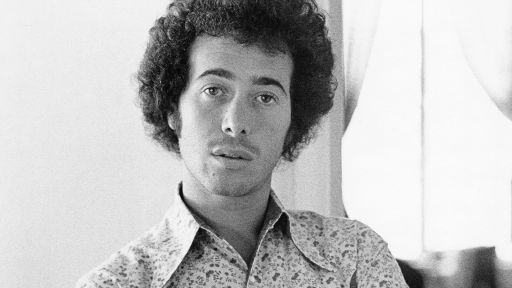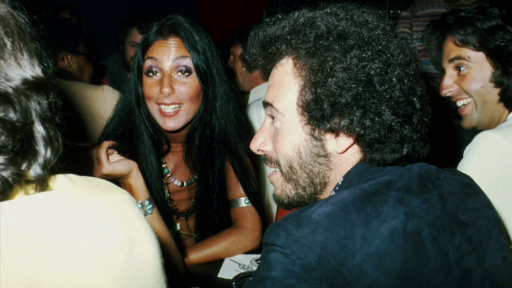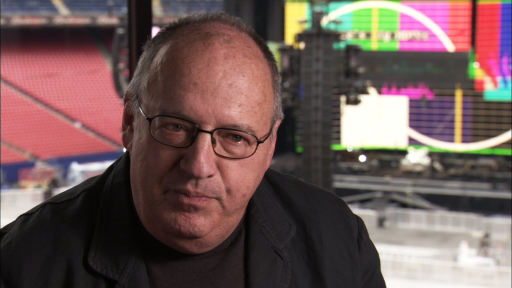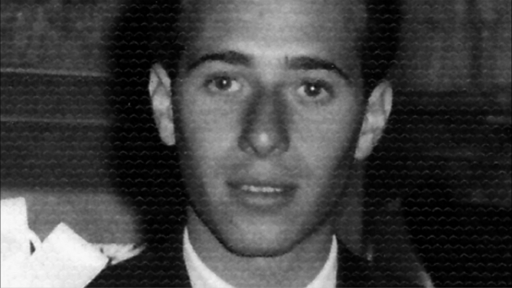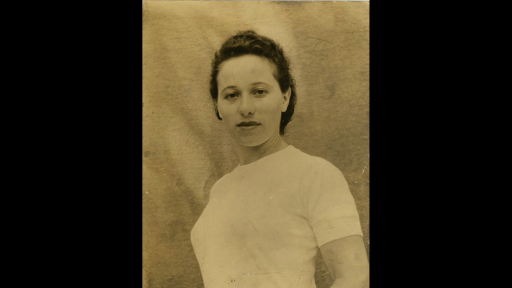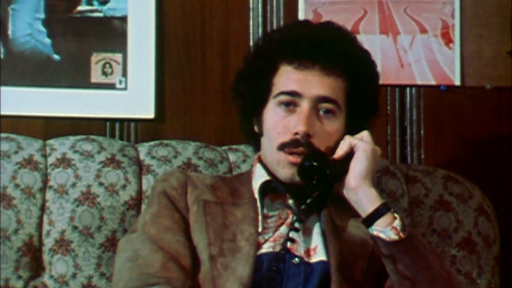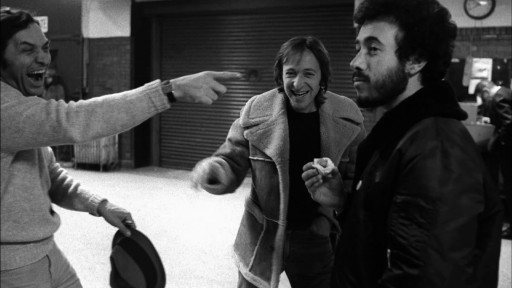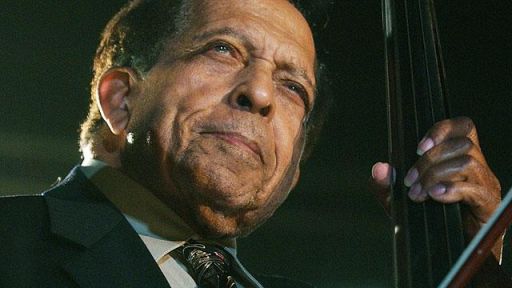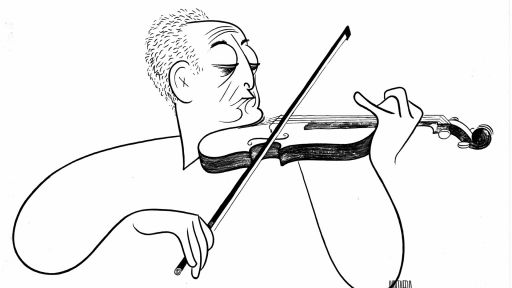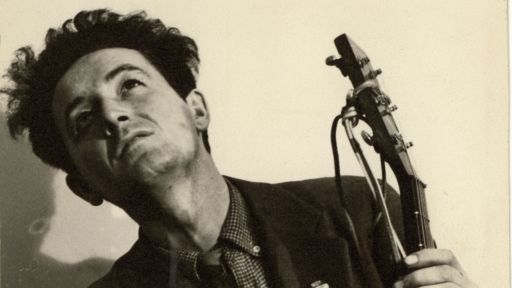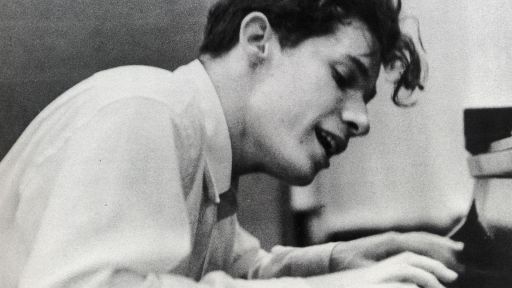It’s the life and times of David Geffen–the making of Hollywood powerbroker.
1943
David Geffen is born on February 21st in Brooklyn, NY.
1949
Geffen’s mother, Batya, suffers a nervous breakdown. Geffen’s father, Abe, checks her into Kings County Hospital. She stays there for nearly six months.
1950
Batya opens Chic Corsetry by Geffen.
1953
Geffen makes money scalping Broadway tickets.
1958
Geffen is voted co-chair of the junior class submission for Sing (school wide talent show). Juniors win in a landslide, beating the senior class for the first time in the history of the competition.
1959
Geffen is re-elected as co-chair of Sing, as is his partner from the previous year, Sue DeWild. Possibly not wanting to share the spot light and feeling like he can do it alone, Geffen (supposedly) tells on DeWild for cutting class, nullifying her post as co-chair. She is eventually reinstated and blames Geffen for tipping off the teacher, Geffen quietly resigns.
1960
Geffen graduates from New Utrecht High School. Predicted to one day run for president in his senior yearbook.
Geffen makes his first trip to Los Angeles. His brother Mitchell is in law school there. Geffen answers an ad in The New York Times and delivers a car out there.
Geffen moves in with Mitchell and gets a job with Remington Rand Univac in their keypunch service bureau. They train him to program the Univac 120, an accounting machine.
Geffen’s father goes into the hospital.
Geffen gets small part in The Explosive Generation.
1961
Batya, completely worn out from working fulltime and tending to her dying husband in the hospital, demands Geffen returns to Brooklyn.
Begins taking night classes at Brooklyn College.
March 21st — Abe dies at The Kings County Hospital.
After his father’s death, the government sends Geffen a social security death benefits check. The money is for David but issued to Batya. Worried that his mother might not hand over the money, Geffen steals the check and eventually uses a good portion of it to get himself to LA.
Geffen applies to UCLA but gets rejected. He gets accepted to University of Texas, Austin. But before he can even get through one term, he has dropped out and flown back to LA.
1962
Mitchell’s new wife’s sister marries Phil Spector. Geffen tags along to some of Spector’s recording sessions – Allowing Geffen a front row seat to music history being made. Only two years his junior, Geffen is inspired by Spector’s huge success. (p40)
1963
Geffen works as an usher at CBS Television City. Working shows such as The Danny Kaye Show, Red Skeleton Hour, The Judy Garland Show–and is even asked to baby-sit Garland’s kids during tapings.
Geffen gets a nose job.
News of JFK’s assassination sweeps the theater while Geffen is working a taping of the Art Linkletter talk show House Party. To Geffen’s disgust, Linkletter tries to carry on with the show and when a man a cheers inappropriately, Geffen lunges at the man and is fired immediately.
With no money and no job, Geffen again heads back to Brooklyn.
1964
Geffen gets a job as a receptionist for a TV show called The Reporter but gets fired after only two weeks. Geffen had taken to reading all of the scripts and critiquing them–which people found inappropriate.
Geffen applies to Ashley Famous but doesn’t get the job because he is not a college graduate. Geffen would not make that mistake again.
Geffen calls the William Morris Agency to apply for a job in the mailroom. He tells them he is Phil Spector’s cousin–a stretch. Geffen then writes on his application that he is a UCLA graduate with a degree in theater arts. On June 22nd, Geffen starts in the William Morris Agency. Geffen hears a rumor that a trainee has just gotten fired for lying on his application. Geffen comes in an hour early for the next four months in an effort to intercept the disastrous letter that would eventually come from UCLA saying they had never heard of David Geffen. When the letter comes, Geffen has UCLA stationary printed, forges a new letter and has Mitchell remail it from LA.
Geffen uses his Christmas vacation to work in the mailroom of the WMA offices in LA , meets Barry Diller.
After hearing Nat Lefkowitz, the head of WMA, came in to work on Saturdays, Geffen begins coming in on Saturdays. Geffen makes himself known, hanging around waiting to “bump into” Lefkowitz. He eventually does and befriends the 56 year old executive.
1965
Meets Elliot Roberts at WMA.
Geffen intercepts a General Artists client list that had been sent to his boss, Ben Griefer. Knowing that having such lists is an industry no-no, Geffen delivers the list to the head of WMA New York, Nat Lefkowitz. Griefer is furious and fires Geffen. Lefkowitz is impressed, rehires him and promotes him to assistant to the agent Harry Kalcheim.
Geffen makes friends with a young agent, Owen Laster. He asks Laster if he can help him sign clients. The two work well together, signing quite a few new clients. Lefkowitz is impressed with Geffen’s talent and dedication.
Lefkowitz promotes Geffen to agent in the TV department under Lou Weiss, giving him a raise and his first expense account.
1966
On a business trip to LA, Geffen comes out to his friend and fellow agent, John Hartmann.
Geffen is able to avoid the Vietnam draft thanks to advice from actor friend Robert Drivas. He checks “yes” to the question, “Do you have any homosexual tendencies?” The draft board classifies him as “physically or mentally unable to serve.”
Jerry Brandt tells Geffen that the music department at WMA is the place for a young agent to make a name for himself. This very astute advice changes Geffen’s path–from movies to music.
1967
Geffen signs the Youngbloods to WMA.
Geffen gets Elliot Roberts a job at Chartoff-Winkler, a company that predominately manages comedians. Roberts clearly has no idea what he’s doing and within a month all of his clients hire new managers.
Buffy St. Marrie tells Roberts to go see her friend Joni Mitchell play at Café Wha? He goes on tour with Mitchell the very next day and very quickly becomes her fulltime manager. He finally gets her a record deal with Reprise. Roberts, Mitchell and David Crosby fly out to California to record Mitchell’s first album. Within just a few weeks, Roberts has tapped into the Laurel Canyon music scene, managing Buffalo Springfield and David Crosby.
Geffen has dinner at one of his client’s houses in LA, director Steve Binder. Geffen expresses his frustration with WMA and says he wants to start managing musicians. Binder puts on a Laura Nyro album and suggests her as Geffen’s first client. Nyro had been wrangled into publishing and management contracts with Artie Mogull and had been booed off the stage at The Monterey Pop Festival in August 1967 (or so the story goes).
Pursues Nyro who is in hiding in NYC and convinces her to let him become her agent/manager.
Geffen hires a lawyer to review the Nyro/Mogull managing and publishing contracts. The lawyer points out that Nyro was a minor when she signed her contract and also that the contracts had been scheduled to remain in effect for 5 years–at a time when the law held that contracts lasting for more than 3 years were unreasonable. Geffen was delighted and immediately demanded Mogull terminate the contracts, make a full accounting of all of Nyro’s copyrights and commissions and return them all.
Geffen gets Nyro in for an audition with Clive Davis at CBS Records. She performs for Davis and he offers her a recording contract on the spot.
1968
Nyro begins recording her album.
Mogull insists his management and publishing contracts with Nyro are valid and binding. Geffen files a lawsuit against Mogull.
Geffen grows very close with Clive Davis and his family.
Laura Nyro releases Eli and the Thirteenth Confession on March 13th.
Leaves WMA (his last day: May 10th) for Ashley Famous – First time working under Steve Ross, head of Kinney services (parking lots and funeral home businesses), who bought the agency for $13 Million in 1967. (p88)
Geffen transforms the music department at Ashley Famous in one brilliant move. Geffen woos agent Todd Schiffman away from APA, knowing that Schiffman’s existing client, manager Albert Grossman, and all of Grossman’s clients (Including Janis Joplin, Kris Kristofferson, Paul Butterfield and Peter, Paul and Mary) will follow. (p90-91)
Geffen meets Sandy Gallin while walking down El Camino Drive in Beverly Hills – The two are introduced by mutual friend Joel Dean. (p93)
Crosby, Stills and Nash decided to form a band. They asked Roberts to manage them. Roberts quickly realizes he’s in over his head and calls Geffen to help. After much deliberation Crosby, Stills and Nash decide they are in favor of including Geffen (“We’re in a shark pool here,” Crosby said. “We need a shark to look after us.”) They make a deal. Refusing to sign a contract, they shake on it. (p101-104)
Geffen and co-worker, Todd Schiffman, are running late to get contracts signed by The Doors. A mile from Asbury Park, NJ their limo breaks down and they have to run along the side of the road the rest of the way in order to make it in time. The papers are signed but Geffen realizes he’s not interested in any more such chases. (p98)
1969 Age 26
Geffen leaves Ashley Famous – Angering many. Opened David Geffen Enterprises. (p105)
Geffen attempts to get CSN out of their individual contracts. When Geffen goes over to Atlantic to ask Jerry Wexler about freeing up Stills, Wexler physically throws Geffen out of his office. But Geffen is called back to Atlantic by Ahmet Ertegun and the two are able to strike a deal. Atlantic will record them and Geffen/Roberts will manage them. Atlantic ends up having to give up the new band Paco in order for Davis to let Crosby and Nash out of their recording contracts. First dealings with Ahmet) (p107-111)
With CSN deal clinched, Geffen moves to LA (p111)
Clive Davis, still bitter about the CSN deal, says he’s suspending Nyro’s recording session. Geffen, through an employee, manipulates the situation masterfully. Saying Nyro was told, she’s furious and saying terrible things about you and unfortunately there’s a reporter and photographer from Life there. Davis quickly changes his mind. (p112)
The Mogull lawsuit is finally heard in NY state court. Citing Mogull’s failure to seek approval from the court – necessary because Nyro was a minor – the judge nullifies the management agreement. However, he refuses to negate the publishing agreement – stating that the law is limited to “performance contracts” and says nothing about publishing. He decides a full trial is needed. (p113)
Crosby, Stills and Nash releases Crosby, Stills and Nash – Columbia – May 29th (p116)
*Suite: Judy Blue Eyes
*Long Time Gone
*You Don’t Have to Cry
*49 Bye-Byes
Ahmet Ertegun suggests Neil Young go on tour with CSN to give the extra musical support they need for their live show. (p118)
Geffen and Roberts formally form Geffen/Roberts Management (p118)
Woodstock – Geffen does not go. Joni Mitchell is scheduled to appear on the Dick Cavett show the next day. Put off by the mud and traffic, and afraid Mitchell will miss her TV appearance, Geffen decides they will stay in New York City while CSNY go on to play their second ever show at the festival. Mitchell is heartbroken and writes the song Woodstock in Geffen’s apartment. The song is later released on her Ladies of the Canyon (1970) album as well as CSNY’s De Ja Vu (1970). (p122)
Laura Nyro releases New York Tendaberry – Columbia – September 24th
*Time And Love
Nyro plays very successful shows at Carnegie Hall the weekend after Thanksgiving. Capitalizing on the moment, Geffen rushes over to Clive Davis with an offer to sell Tuna Fish Music to CBS. They shake on the deal – CBS will acquire the company in a tax-free exchange of stock as soon as the Mogull lawsuit is settled. (p125)
Sandy Gallin suggests Geffen take an agent job at CMA in LA. Geffen agrees, hoping to make a connection with the chairman of the agency, Freddy Fields. (p127)
1970 Age 27
David Crosby suggests Jackson Browne send a tape to Geffen. Browne sends a tape, an 8″ by 10″ glossy and a letter. Geffen thinks it’s cheesy and figures “my god, this guy can’t be good” and throws it all in the garbage. His secretary fishes it out, thinking Browne is handsome, listens to the tape and then makes Geffen listen. Geffen immediately changes his mind. (p131)
CSNY releases De Ja Vu – Columbia – March 11th (p134)
*Woodstock
*Ohio
*Our House
After a tumultuous tour, CSNY breaks up, each member going off to pursue solo careers.
Geffen grows anxious for the Mogull lawsuit to come to a close so he can officially sell Tuna Fish Music to CBS. But the lawsuit is dragging and because the deal was made in CBS stock, and the stock was dropping, Geffen was losing money. He is eventually able to make a stabilized deal with Davis. (p137)
Friendship with Ahmet and Mica growing. They take trips to Europe together. Geffen buys a Picasso. (p138)
Geffen takes his new client, Jackson Browne, to CBS so he can audition for Clive Davis. During the meeting Davis excuses himself to take a call from Goddard Lieberson, Davis’ boss. Geffen is incensed at what he saw as Davis’ rude behavior and instructed Browne to pack up his guitar. Browne thought Geffen was being irrational but did as he was told. They got into the elevator with Davis screaming after them. (p140)
Geffen goes to Ahmet Ertegun to ask him about recording Jackson Browne. Ahmet says ” I already have a lot of money. Why don’t you open a record company so you can have a lot of money.” Ahmet then offers 50% partnership, financial support and Atlantic distribution. An incredible deal for David and an offer he can’t refuse. (p141)
Geffen leaves CMA (p142)
1971 Age 28
Asylum Records is established at 9130 Sunset Blvd.
Geffen hires Linda Loddengaard who is to be his assistant for the next 17 years. She was fiercely loyal. (p144)
Geffen forges a telegram to Mo Ostin from Neil Young in order to scare Ostin into improving Neil’s new contract with Warner/Reprise. The plan works. (p148)
Geffen goes with Ertegun to the South of France. Ertegun is throwing a party for The Rolling Stones – recently signed to Atlantic. Geffen attempts to woo The Stones into letting Geffen/Roberts book their next tour. It does not work. (p151)
Rather than go through a full trial, Geffen concedes defeat and settles with Mogull – paying out $470,000.00. (p157)
The papers are finally signed for the sale of Tuna Fish. Geffen is officially a millionaire at 28. Nyro signs the papers but also decides to stay at Columbia and not go to Asylum with Geffen. Irreparable damage is done to their relationship. They are no longer in business together and no longer friends. (p157)
Jackson Browne introduces Geffen to Glenn Frey. (p158)
Geffen buys out Don Henley and Glenn Frey’s contracts in order to sign them as the Eagles. He also pays to get their teeth fixed. (p160)
Geffen in sauna with Frey, Henley and Doheny and vows never to let Asylum get larger than the number of artists he can fit in that sauna. (p160)
Irving Azoff comes to LA and becomes a player in the game. Azoff had sent a demo of one of his clients, Dan Fogelberg, to Geffen. Geffen told him he liked it and if Azoff would give him about a year he would sign Fogelberg. Impatient, Azoff strikes a deal with Davis. Geffen throws a fit. (p161)
CSNY releases live album 4 Way Street – Columbia – April 7th – (p162)
Difficult and constantly high Stills is fired by Geffen. Stills prints up bumper stickers “Who is David Geffen and why is he saying those terrible things about me?” (p163)
Geffen gets arrested for carrying weed (meant for Crosby) at LAX on Yom Kippur. Geffen’ brother, Mitchell, bails him out of jail. (p164)
Geffen appears on The Dating Game.
Geffen’s Picasso is stolen. The insurance company issues Geffen a check for $75,000.00. With a $40,000.00 profit, Geffen becomes less concerned with the loss of the painting. (p166)
Geffen accepts an invitation to spend the weekend in New Haven, CT with Jerry Greenberg, one of Ertegun’s top lieutenants at Atlantic. Greenberg takes Geffen to his favorite restaurant and introduces him to the owner, Steve Rubell. A few years later Rubell opens Studio 54 where Geffen spends a great deal of time – the two become good friends. (p167)
1972 Age 29
Jackson Browne releases Jackson Browne – Asylum – January – (p172)
*Doctor My Eyes
Eagles release Eagles – Asylum – June 1st – (p172)
*Take it Easy (Browne/Frey)
*Witchy Woman
*Peaceful Easy Feeling
Joni Mitchell releases For the Roses – Asylum – November
*You Turn Me On, I’m a Radio
(A shot at David for trying to make her record a radio friendly album)
Geffen meets Tom Waits at The Troubadour and wants to sign him.
Geffen makes a deal with Steve Ross and sells Asylum to Warner Communications for $7 million. “The biggest number he could think of”. Asylum had only existed for two years. (p176)
1973 Age 30
Batya puts the corset shop up for sale and moves to LA with her new husband Sam Sandler. Within a few years Batya’s only surviving sibling, Deena Volovskaya, comes from Russia to join her. (p182)
Officially rich after Asylum sale, Geffen begins to make his first big purchases. In addition to the home he bought for his mother, Geffen buys a beach house and Mercedes for himself. (p183)
Now that he is wealthy, he is able to see what he could not when he was poor – money alone is not going to make him happy. He begins analysis 5 days/week. (p184)
Decides he wants to be straight. Dates Janet Margolin for a short time. (p186)
Patches up things with Clive Davis. (p186)
Gets in fight with Doug Weston, the owner of The Troubadour, because Doug won’t book one of Geffen’s artists, David Blue. Geffen threatens to open a rival club, Weston laughs. Geffen begins making plans to open The Roxy. (p187)
Tom Waits releases Closing Time – Asylum – March
*I Hope That I Don’t Fall in Love With You
Eagles release Desperado – Asylum – April 17th – (p188)
(The album is a flop)
*Desperado
Geffen befriends Robbie Robertson in hopes of putting together a tour with The Band and Bob Dylan. Hoping to maybe even eventually sign Dylan to Asylum. (p189)
Joni Mitchell moves in with Geffen – platonic. (p191)
Geffen, Mitchell, Robertson and his wife go to Paris for a vacation. Mitchell writes the song Free Man in Paris about Geffen. (p192)
Geffen gets Dylan to agree to do a 21 city tour with The Band. (p195)
Irving Azoff begins working as a manager for Geffen/Roberts Management. (p199)
Jac Holzman steps down as head of Elektra. Ross merges Elektra and Asylum and asks Geffen to be the chairman of the new Elektra/Asylum Records. Ross offers a raise and renegotiation of his stock deal. Geffen accepts. (p196)
Geffen, Lou Adler and Bill Graham open The Roxy – Opening night, September 20th, Neil Young plays to a sold out club. Wearing an all white suit and sunglasses, Young plays song from his new album Tonight’s the Night.(p202)
*Tonight’s the Night
Opening night of The Roxy is also the night Geffen makes his first date with Cher. (p203)
*I’ve Got You Babe
Linda Ronstadt releases Don’t Cry Now – Asylum – September
Jackson Browne releases For Every Man – Asylum – October
*Take it Easy
*These Days
As head of Elektra/Asylum, a division of Warner, Geffen is asked to attend a Warner “synergy meeting”. Geffen has a temper tantrum. Very embarrassing. (p211)
After months of courting Dylan, Geffen finally signs him two a two album deal (with a handshake on the second album). The deal also allows Dylan to form his own label, Ashes and Sands Records, with Elektra/Asylum distribution. (p213)
Geffen’s ego swells after the ‘winning’ of Dylan and no one hates it more than Jerry Wexler. The two men see each other at a Warner execs meeting. Baited by Geffen, Wexler is once again unable to control his hatred. Wexler lunges at Geffen and screams: “You’d jump into a pool of pus to come up with a nickel between your teeth.” (p215)
Irving Azoff capitalizes on the Eagles’ unhappiness with Geffen and Roberts and eventually leaves the company to personally manage the Eagles. (p217)
1974 Age 31
Bob Dylan releases Planet Waves – Asylum – January 17th
*On a Night Like This
*Forever Young
(Backed by The Band)
Joni Mitchell releases Court and Spark – Asylum – January
*Free Man in Paris
(Written about Geffen after they took a trip to Paris together)
Carly Simon releases Hotcakes – Elektra (Asylum) – January
Bob Dylan releases Before the Flood – Asylum – June 20th
Tom Waits releases The Heart of Saturday Night – Asylum – October
*New Coat of Paint
*Fumblin’ with the Blues
*(Looking for) the Heart of Saturday Night
Linda Ronstadt releases Heart Like a Wheel – Asylum – November
*You’re no Good
Cher and Bono begin official divorce proceedings. Geffen becomes heavily involved. (p219)
Robertson and Dylan throw Geffen a surprise 31st birthday party, at the urging of Robertson partially as an apology for not thanking him at the end of their tour. (p227)
Dylan and The Band decide they will not give Elektra/Asylum the live album, Before the Flood, like they had promised Geffen. They told Geffen if he wanted the album he would have to bid on it like everyone else. In the end, Geffen got the album but for a much higher price than he had hoped for. Very upsetting for Geffen. Damage to his relationship with Dylan and Robertson. (p230)
Geffen convinces Ross to merge Elektra/Asylum with Atlantic. The outcome, Atlantic/Elektra/Asylum was to be headed by Ertegun and Geffen as co-chairmen and Jerry Wexler as vice chairman. (p233)
Mutiny is declared at Atlantic with news of the merger, with Wexler refusing to answer to Geffen. The merger is called off. (p234)
Geffen and Cher break into the mansion she used to share with Bono, and he now lives in with his girl friend, in an effort to reclaim the house. The divorce starts to get very ugly. (p234)
Cher goes into studio with Phil Spector to record. Geffen is there every day and is very opinionated. Spector, unhappy about being bossed around and completely insane, pulls a gun on Geffen and says: “Don’t you come near me! I am in charge here, not you!” (p240)
The Cher TV show premiers. (p247)
Cher begins affair with Gregg Allman – they eventually marry. Geffen and Cher break up. (p248)
1975 Age 32
Geffen very depressed over break up with Cher. Depression grows when Time Magazine article comes out in which Cher says of Bono and Geffen: “I’ve traded one short, ugly man for another.” (p249)
Esquire article comes out – The article is not at all complementary of Geffen and also embarrassingly trumpets Geffen and Cher as a happy couple – something that was now wholly untrue. Very hard for Geffen. (p250)
Summer – Geffen finally buys Doris Day’s home after dreaming of owning it since 1969. (p254)
Geffen meets a 24 year old Jeffrey Katzenberg for the first time. Katzenberg is working as Barry Diller’s assistant at Paramount and comes to pick the men up at the airport. Geffen is impressed with the young Katzenberg and, specifically, his ability to breeze the men through the usually very painful process of customs. (p254)
Geffen begins EST. The program helps him greatly and begins to lift him out of his depression. (p256)
Steve Ross makes good on his promise to help Geffen get into the movie business. He names Geffen vice-chairman of Warner Brothers Pictures and asks Ted Ashley to come out of retirement and be chairman. (p261)
Geffen leaves Elektra/Asylum for Warner. Ross names Joe Smith, Mo Ostin’s deputy at Warner Bros. Records, the new Elektra/Asylum chairman. (p262)
Geffen begins dating Marlo Thomas, whom he meets at Diller’s house. (p264)
1976 Age 33
Eagles release The Greatest Hits – Asylum
After seeing a rough cut of The Outlaw Josey Wales Geffen tells Clint Eastwood, the film’s director, that he thinks it’s the best picture he’s ever done but that it would be better if it was twenty minutes shorter. To which Eastwood replies, “I’m glad you took the time to see the picture, and I appreciate your comments. Why don’t you study the picture some more and see if you have any more thoughts. When you do, give me a call over at Paramount.” “Why over at Paramount?” Geffen asked. “Because that’s where I’ll be making my next movie.” Geffen realizes he’s put his foot in his mouth and quickly recants. “Clint, the picture is perfect. I wouldn’t change one frame. Thank you very much.” (p267-268)
A meeting is called to screen and discuss the possible release of the third Billy Jack movie. After the screening Ashley asks the execs to anonymously jot down on a piece of paper what they think the domestic box-office gross of the movie could be. Ashley reads off the estimates – “Ten-point-five million…twelve million…fourteen million…fifteen million…thirteen-point-five million…one million! Which asshole said one million?” Geffen stood up. “This asshole said one million,” he said. The argument escalates ending with Ashley launching across the table in an attempt to strangle Geffen. (p272-273)
Geffen leaves Warner Brothers after only eleven months. Geffen’s employment agreement has a non compete clause leaving Geffen legally unable to work for the remainder of his contract. The rumor is Geffen left because he and Ashley couldn’t get along. (p275)
Geffen and Thomas break up. One of the main reasons for the break up being that Geffen continued to have flings with men outside of the relationship. (p278)
Eagles release Hotel California – Asylum – December 8th
*Hotel California
*Life in the Fast Lane
1977 Age 34
Geffen attends Clive Davis’ post-Grammy Awards breakfast with Paul Simon and Sue Mengers. Brian Rohan, a music lawyer from San Francisco, physically attacks Geffen. Rohan believes Geffen had gone behind his back to negotiate directly with one of his clients on a deal. Rohan kicks over Geffen’s chair and puts his hands around his neck. Sue Mengers lets out a scream and Paul Simon raises a giant saltshaker above his head. “Brian, what are you doing?” shouted Simon. “It’s the only way I could hurt this guy. He won’t return my phone calls! This is the only way that I could think to properly humiliate him!” The two men are pulled apart. Geffen claims he did not return Rohan’s calls because he had once made an anti-Semitic remark. The next day, Geffen gets a call from Frank Sinatra, offering condolences and help if he wanted it. (p277-278)
Angry about Warner’s control of their music-publishing rights, and bitter that Geffen returned Browne’s publishing to him, the Eagles put Irving Azoff on the case to get back their publishing rights. Azoff files suit on the band’s behalf against Geffen and Warner Communications – $10 million in damages and the return of copyrights. The suit argued that Geffen had acquired the copyrights through an illegal conflict of interest when he was their manager, publisher and label boss. They win in an out of court settlement. (p280)
Diagnosed with bladder cancer. First real look at his own mortality. (p282)
Begins to buy up real estate and much more art. (p285)
Geffen buys a two-bedroom apartment on Fifth Avenue across the street from the Plaza Hotel in NYC. He asks Charles Gwathmey to redesign the space. Once Gwathmey is finished Geffen move to NYC. (p285-287)
Geffen met and began to hang out with Calvin Klein. (p289)
Studio 54 opens at 254 West 54th Street, the site of the old CBS soundstage. Geffen becomes a regular and reacquaints himself with Steve Rubell. (p290)
One evening in the VIP room at Studio 54, Geffen sees Ertegun but feels snubbed and ignored by him. A wounded and vengeful Geffen begins telling people that Ertegun is anti-Semitic. (p292)
1978 Age 35
George Trow’s two part piece for the New Yorker on Ahmet Ertegun comes out – David is crushed and embarrassed by how he is portrayed. Specifically: “There was a brief vogue for David Geffen.” (p293)
Paul Simon introduces Geffen to his neighbor Lorne Michaels. The three men begin to spend a great deal of time together, often going out on the town in pursuit of women. (p293)
Geffen meets Carrie Fisher. They go on one date but Fisher decides to date Paul Simon instead. (p294)
Geffen teaches music business seminars at Yale – partially arranged by Martin Peretz. (p294)
1979 Age 36
Geffen goes to Sloan-Kettering for a second opinion and finds out that the tumor that had been removed had not been malignant. (p296)
Geffen comes out to his mother. (p297)
Geffen’s contract with Warner finally expires, freeing him up to go back to work. (p297)
Geffen goes to Barbados with Paul Simon and Lorne Michaels. They discuss Geffen’s next career steps. Simon says, “Begin with what you know: the record business. You don’t know where it will lead you.” (p298)
1980 Age 37
Formed Geffen Records – Mo Ostin offers a joint-venture agreement in which Warner Bros Records, for five years, would cover all of the new label’s expenses. Artists signings, staff salaries, marketing, promotion and backroom funtions. The profits would be split equally between the two partners and they each would own 50 percent of the venture’s assets. The deal included record and theater deals. Geffen was also pushing hard for a movie-production deal. Ross, as ever, had tremendous faith in Geffen and supported the idea. But Ted Ashley and Frank Wells, the top execs at the Warner movie studio, were against it. Ross asked Geffen to be patient and assured him a deal would be made in due course. Ross also promised Geffen that Warner Communications would one day buy the half of the record label it did not own. In addition, Geffen retained all manufacturing and distribution rights. He offered to sell the rights, in perpetuity, to Warner Communications but they passed. A decision Warner would regret and an eventual huge pay out for Geffen. (p301)
Geffen purchases a home in East Hampton. 40 James Lane. $800,000.00. Hoping to have this as his weekend home when he was in New York. (p305)
Geffen rents Marlow Thomas’ home at the top of Angelo Drive in Beverly hills – in order to be close to the Geffen Records offices on Sunset Boulevard. Within a year, after she and Phil Donahue get married and settle in New York, Thomas sells the house to Geffen. (p305)
Set up shop at his old offices on Sunset Boulevard. (p305)
Eddie Rosenblatt, Warner Brothers senior vice president, joins Geffen Records as president. (p305)
Carol Childs and John David Kalodner (who made a name for himself at Atlantic) were hired as A&R executives. (p307)
Calvin Klein suggests Geffen name the new label Geffen Records, finally convincing him by saying if his name is on the door he’ll “get laid more” (p308)
Upset with Casablanca, Donna Summer became Geffen Record’s first record deal. (p309)
Begins working with Robert Towne on Personal Best. Geffen agrees to personally bankroll the project for the time being – based on a promise from Barry Diller that Paramount Pictures will announce plans to distribute the picture once the SAG and AFTRA strikes are over. (p310)
Unhappy with MCA, Elton John signed to Geffen. (p311)
John Lennon is back in the studio recording (with Yoko) after a five year hiatus. No longer represented by Apple Records, Lennon is a free agent. Geffen is shrewd enough to send a telegram addressed to Yoko, showing regard for her. Because of this, Yoko asks Geffen to come to The Dakota for a meeting. Geffen had heard Yoko had an affinity for white and that everything in her office was white. With this in mind, Geffen decides he will wear all white. Yoko, dressed in all black, stifles a laugh when her assistant ushers Geffen in. After determining he has “good numbers” and agreeing on a price for the album, Yoko says she’ll think about it. She calls another meeting for the next day. After passing the final test, agreeing to sign with John and Yoko without hearing the record first, a deal is finally made. (p312-316)
Obtained a seat on the University of California board of regents. Ironic since he lied about graduating from UCLA in order to get started in the business. (p316)
Donna Summer releases The Wanderer – Geffen – October – (p318)
*The Wanderer
John Lennon released Double Fantasy – Geffen – November 17th – (p319)
*(Just Like) Starting Over
*Beautiful Boy
*Watching the Wheels
*Woman
*Help me Help Myself
On December 8th John Lennon is shot in front of The Dakota by Mark David Chapman. Geffen had been with John and Yoko at the Record Plant earlier that evening. Geffen gets a phone call and rushes over to Roosevelt Hospital where Lennon has already been pronounced dead. Geffen comforts Yoko and eventually escorts her through the crowds of people (NYT photo) back to her home. Geffen issues a press statement on behalf of the grieving Yoko. (p321)
After Lennon’s death, Double Fantasy becomes Lennon’s best-selling post-Beatles album. (p323)
Personal Best budget begins to spiral out of control, Diller reneges on his promise to have Paramount distribute the film. Geffen shuts down production two days before x-mas. Calling a hiatus in order to regroup over the holidays. A bitter battle begins between Geffen and Towne. (p325)
Towne, scared that Geffen may steal what had already been shot, took 40% of the film and the soundtrack off the Warner Brothers lot and back to his house. (p326)
Geffen’s shrink suggests he hire an in-house lawyer to handle negotiations and relieve some of his stress. Childs suggests Eric Eisner “Because he has a heart of stone” (p327)
1981 Age 38
Simon & Garfunkel concert in Central Park (p328)
Elton John releases The Fox – Geffen
*Heart in the Right Place
Geffen’s friend Michael Bennett, the Broadway producer and creator of A Chorus Line, tells Geffen about the new musical he is developing, Big Dreams. He invites Geffen to a workshop production of the show. Geffen decides, along with The Schubert Organization, ABC and Metromedia, to finance the show. In return, Geffen obtained the rights to release the show’s original cast album. He also purchased, for one million dollars, the right to turn the musical into a movie. Geffen suggests they change the name of the production to Dreamgirls. (p329-332)
Geffen tells Bob Avian, Michael Bennett’s longtime producing partner, to get an eye lift. (p332)
Diller offers to reevaluate the possibility of Paramount distribution for Personal Best subject to a screening of the film. Geffen, Towne, Diller and Eisner screen the film at Diller’s house. Diller and Eisner talk it over until one in the morning and again decide against distributing the film. Geffen is disappointed and furious. (p334)
Geffen figures there is only one person that will save him now, Steve Ross. Geffen takes the film to Warner and Ross instructs the new chairman of the movie studio, Bob Daly, to offer Geffen a deal in which the movie studio will create a production company for Geffen to run. Personal Best will be it’s first release. The deal gives Geffen the right to use Warner money to make whatever films he chooses, up to a certain budget level, with no approval necessary. At his own insistence, Geffen will be paid no money on a film unless the film posts a profit – in which case Geffen will take 10 percent of the gross. (p335-336)
Geffen’s lawyer friend, Allen Grubman, manages to get $15 Million for foreign rights to Geffen Records from Walter Yetnikoff, the chairman of CBS Records. Geffen hires Grubman as his new lawyer. Because Geffen Records is having a very slow start and not making much money, this pay out makes Ross and Ostin happy as it will cover some of the label’s heavy start-up costs. (p337)
On December 20th, Dreamgirls opens at the Imperial Theatre on West 45th Street. (p339)
Bernie Jacobs, chairman of The Schubert Organization, asks Geffen to be their other partner on a new show, Cats. Geffen eagerly accepts. (p340)
Geffen gets into argument with Paul Simon over the foreign distribution of the Central Park reunion-concert album. Geffen is worried that Yetnikoff, still angry at Simon for leaving Columbia, will refuse to release the album which CBS now has the international distribution rights to. Simon is not concerned and believes Yetnikoff will release the album because it will be a great success. Geffen insinuates himself into the situation anyway and strikes a deal with Yetnikoff to release the album internationally but with a Geffen Records logo. When Geffen informs Simon that he has taken care of the problem and that Simon’s album will be released internationally on Geffen Records, Simon becomes very angry. (p340)
1982 Age 39
On February 5th, Personal Best is released in the US – Geffen is proud of gay angle. (p343-344)
Geffen has a terrible falling out with Gil Segel, his business manager for 20 years. Geffen says Segel was cheating him, Segel denies it. They break ties and Geffen decimates Segel’s client roster. (p345)
Geffen agrees to finance Risky Business (p347)
Tom Cruise and Rebecca Demornay are cast after much trial and error. (p349)
On June 6th, Dreamgirls at the Tony Awards. Nominated for 13 awards. Disappointing night, they did not win too many. (p350)
Risky Business begins shooting (p351)
On October 7th, Cats opens at The Winter Garden Theatre on Broadway and 50th Street. Geffen takes Calvin Klein and Bianca Jagger to the opening. (p355)
Joni Mitchell releases Wild Things Run Fast – Geffen – October
*Wild Things Run Fast
Geffen insists on Risky Business ending change. “He’s gotta get into Princeton, he’s gotta have that victory!” Geffen and Paul Brickman (director) vehemently disagree on this point. Begin to fight. (p359)
Geffen meets 19 year old Steven Antin at a party at Geffen’s house. Geffen falls hard for Antin. (p362)
Antin become the first boyfriend Geffen introduces to his mother. Upon meeting him, Batya looks him over and says, “He’s not Jewish.” (p363)
Asia releases Asia
*Heat of the Moment
(Only real hit for Geffen Records in 1982 and first double platinum for Geffen Records)
1983 Age 40
Neil Young releases Trans – Geffen – January
*Little Thing Called Love
Geffen makes a bid to take over Elektra/Asylum. The offer is declined. Geffen is irate and chews out Horowitz, in public, at the top of his lungs, in a fancy Hollywood eatery. (p366-367)
June 5, Cats at the Tony Awards. Eleven nominations and seven wins, including Best Musical. (p369)
The Risky Business ending is reshot and test audience evaluations show the version with the happy ending is much preferred. (p374)
On August 5th, Risky Business was released
Neil Young releases Everybody’s Rockin’ – Geffen – August
*Payola Blues
Geffen sued Neil Young for making non-commercial albums. He said that Trans and Everybody’s Rockin’ were “musically uncharacteristic of Young’s previous recordings” and that he had been damaged in excess of $3 million. Brazen, even for Geffen. Young, outraged, countersued for $21 million. This went on for over a year until both suits were eventually dropped. (p379)
Geffen sells Michael Bennett his Hamptons house. (p381)
Geffen and Antin call it quits. (p382)
1984 Age 41
Geffen’s joint venture deal with Warner Bros. Records was about to expire. It was time to renegotiate. Geffen would propose an outrageous new deal: At the end of the new five-year contract, Warner Bros. Records would hand over the 50% equity stake it controlled in Geffen Records, giving Geffen complete ownership of the label. Geffen deliberately distances himself from Mo Ostin and Ostin’s wife. A tactical move, Geffen knew if he picked a fight with Ostin and they stopped speaking he would be able to deal only with Ross and Ross tended to give Geffen whatever he wanted. Geffen’s plan worked. (p388-390)
Don Henley releases Building the Perfect Beast – Geffen – (p391)
*All She wants to do is Dance
*The Boys of Summer
(The biggest hit for Geffen Records to date – The record went triple platinum and Henley won the Grammy for Best Rock Vocal Performance)
1985 Age 42
Geffen hires two new A&R guys, Gary Gersh and Tom Zutaut, in order to shake things up and get Geffen Records on a more successful track. (p392)
Geffen meets Robert Brassel. They fall in love. (p395)
Michael Bennett dies of AIDS. (p397)
Geffen signs on Frank Oz to direct Little Shop of Horrors. (p400)
1986 Age 43
Budget problems with Little Shop of Horrors. (p403)
Geffen has falling out with Elton John, tension over bad records sale, both blaming the other. (p404)
Donna Summer says “AIDS is God’s revenge on gays” during a concert. (p404)
Peter Gabriel releases SO – Geffen – (p405)
*Sledgehammer
*In Your Eyes
*Red Rain
(Huge hit for Geffen Records)
Test screening of Little Shop of Horrors, again Geffen insists the ending is changed to a happier one. (p408)
Tom Zutaut discovers Guns N’ Roses at the Troubadour. (p409-410)
Lifespring becomes the new EST. (p413)
Geffen gets Brassel a job at Warner Bros. movie studio. (p414)
December 19th, Little Shop of Horrors opens and is a disappointment at the box office. (p414)
1987 Age 44
Whitesnake releases second album with Geffen Records, it’s a massive hit and things are looking up at the label. Geffen buys Kalodner a Range Rover in gratitude for signing the band four years earlier. (p416)
Batya diagnosed with cancer. Begins to grow very ill. (p417)
Cher records for Geffen Records. (p421)
Guns N’ Roses release Appetite for Destruction – Geffen – July 21st – (p422)
Welcome to the Jungle
Sweet Child o’ Mine
(Huge success for Geffen Records)
Aerosmith release Permanent Vacation – Geffen – August – (p423)
*Rag Doll
*Dude Looks Like a Lady
(Another big hit for Geffen Records)
Kalodner appears in the Dude Looks Like a Lady video decked out in a wedding dress. (p423)
Cher releases Cher – Geffen – (p423)
*I Found Someone
(The album does well and makes the charts)
1988 Age 45
At 12:59 P.M. on March 10th, Batya dies of cancer in Cedars-Sinai Hospital. (p425)
M. Butterfly opens on Broadway – David is co-producer. (p426)
Beetlejuice is a box office success. (p427)
Geffen manages to get the Welcome to the Jungle video on MTV. The record goes from being a success to a HUGE success. (p430)
Geffen makes his debut on the Forbes 400 – reported net worth $240 million.
Geffen Records begins to enjoy real success. (p432)
Gary Gersh finally makes good by signing Sonic Youth. (p433)
Guns N’ Roses release Lies – Geffen – November 30th – (p433)
*Patience
*One in a Million
(Huge hit – Also very controversial due to homophobic lyrics)
Geffen has passages cut from the book Hit Men. (p435)
Steve Ross does not tell Geffen about the Time Warner merger. Geffen is furious. (p438)
1989 Age 46
Geffen tries to get Linda Loddengaard to sell him her small equity stakes in Geffen Records in an effort to have complete control over the company (so he can sell the company to whomever he chooses). Loddengaard refuses. The two get into a huge fight and Geffen fires Linda Loddengaard, his assistant of seventeen years. The two never spoke again. (p441)
Geffen’s relationship with Brassel on the rocks, partially because of Brassel’s drug addiction. (p444)
AIDS taking it’s toll. David Bombyk and Steve Rubell both die of the disease.
Don Henley releases The End of Innocence – Geffen – June – (p448)
*The Heart of the Matter
*New York Minute
(Huge success)
Cher releases Heart of Stone – Geffen – June – (p448)
*If I Could Turn Back Time
(Another hit)
With projected 1989 revenues of $175 million, Geffen Records was no longer a small record company.
1990 Age 47
Geffen decides it’s time to sell Geffen Records – A bidding war, mostly choreographed by Geffen, ensues. (p450)
Geffen sells Geffen Records to MCA for $550 million – Making Geffen the majority share holder of MCA. (p458)
Linda Loddengaard threatens to file a lawsuit if an agreeable settlement can’t be reached. Geffen pays her $5 million on the condition she signs an NDA. She signs and retires to Santa Barbara. (p462)
Geffen impulsively decides to buy the Warner estate and everything in it for $47.5 million.
Michael Musto and Michelangelo Signorile begin relentless attack on Geffen. Berating him for having Guns N’ Roses on his label, offering them for a GMHC benefit as well as being a powerful gay man in the closet while the AIDS crisis raged on. (p466-467)
Walter Yetnikoff leaves CBS. People speculate Geffen had a hand in it. (p468)
Michael Ovitz brokers sale of MCA to Matsushita. Sale makes Geffen $660 million.
Steve Ross falls ill with prostate cancer. Geffen was still furious about not getting the stock options he felt he deserved from the Time Warner merger and also for not acquiring his record label (which he said Ross promised to do). Geffen blasted Ross in the press while he Ross went through chemo. (p471-472)
1991 Age 48
Eisner sues Geffen in wake of MCA sale to Matsishita. They settle. Eisner leaves the company with about $32 million. It was not the 10% he felt he was owed, but it was slightly more than the 5% Geffen wanted to give him. They never spoke again. (p474)
Geffen has a star-studded 48th birthday party at Sandy Gallin’s beach house. Marianne Williamson, new-age guru and creator of “Course in Miracle”, was on hand to lead a prayer for David and all his guests. So LA! (p476)
Geffen begins to build serious art collection. (p477)
Nirvana releases Nevermind – Geffen – September 24th – (p477)
*Smells Like Teen Spirit
*Come As You Are
(HUGE success – Signed by Gary Gersh, suggested by Sonic Youth, Nirvana finally brought Gersh up to par with Zutaut and Kalodner)
Madonna stopped speaking to him on account of Geffen stealing her chauffeur. (p478)
John Mendelssohn fails to write bio about Geffen. Geffen refuses interview. Mendelssohn writes threatening letters. Geffen puts his lawyer on it and Mendelssohn is forced to return his advance to the publisher. (p479)
Geffen helps Calvin Klein save his business. Coming to the rescue with advice as well as money. (p480-481)
1992 Age 49
Geffen meets Clinton and decides to back him. (p483)
November 18th, Geffen is honored with a AIDS Project Los Angeles Commitment to Life award. During his acceptance speech, Geffen officially comes out as a gay man. “As a gay man, I’ve come a long way to be here tonight.” (p486-490)
The Advocate makes Geffen Man of the Year. (p490)
Steve Ross dies. (p491)
Geffen becomes very politically involved. Specifically taking a huge role in the ‘gays in the military’ fight. (p493)
Geffen has terrible arguments with Don Henley and Joni Mitchell. (p494)
Work begins on Interview with the Vampire. (p497)
1993 Age 50
Geffen turns 50. (p499)
M. Butterfly film opens and is a financial disappointment. (p503)
As chairman of the APLA CTL benefit, Geffen raised $4.3 million, the most in the benefit’s history. (p505)
1994 Age 51
Kurt Cobain dies of a self-inflicted shotgun wound. (p508)
Eagles release Hell Freezes Over – Geffen Records – November 8th – (p509)
Meets Todd Mulzet. They begin dating. (p512)
Geffen attends Bill Clinton’s bday party at the White House with Mulzet as his date. Crosby, Stills and Nash sing. Clinton asks his for advice on spinning the press. (p513)
Eisner fires Katzenberg from Disney. (p517)
Rice loves Interview with the Vampire and reconciles with Geffen. (p520)
Geffen, Katzenberg and Spielberg all go to Washington, DC for a dinner at the White House. They decide they are going to talk after dinner about SKG. Geffen gets stuck in the White House and is unable to leave. They are finally able to talk in the morning and decide that they are ready to commit to the idea of SKG and make it a reality. (p524-526)
October 12th, a press conference at the Peninsula Hotel in Beverly Hills is held to announce the birth of DreamWorks SKG. (p528)
Rumor that Geffen and Keanu Reeves married. (p533)
November 9th, Interview with the Vampire premiere. (p535-536)
Geffen has number one and two records (Eagles, Hell Freezes Over – Nirvana, MTV Unplugged) and number one movie (Interview with the Vampire – went on to gross $105 million). (p537)
DreamWorks SKG (as it was now officially called) makes inspired deals with ABC (TV) and Microsoft (interactive and multimedia products). SKG also makes deals with outside investors. (p537-539)
Mulzet and Geffen break up. (p539)
1995 Age 52
In March there is a going away party for Geffen at Geffen Records. (p539-542)
Geffen raises a tremendous amount of money for the DNC and AIDS charities. Specifically he gave $2.5 million to GMHC and $1.5 to God’s Love We Deliver. (p544)
Seagram, headed by Edgar Bronfman, Jr, buys 80% of MCA from Matsushita. Bronfman changed it’s name to Universal Studios, the longtime name of it’s movie and theme-park units. (p544)
Geffen, Spielberg, and Katzenberg begin talks to work out distribution deal with MCA (now Universal) – Wanting to make good on their promise to Lew Wasserman and Sid Sheinberg. (p546-547)
Geffen and Bronfman work out the details of the deal in one afternoon and announce it the next day. Michael Ovitz calls Bronfman and criticizes the deal…Geffen/Ovitz rivalry begins to heat up. (p548-549)
Mo Ostin agrees to head up DreamWorks Records. (p550-551)
DreamWorks TV programming alliance with ABC was dealt a serious blow when Disney acquired Capital Cities/ABC. Katzenberg was still locked in an ugly battle with Eisner over Katzenberg’s settlement agreement. (p554)
Eisner hires Ovitz to be president of Disney. Ovitz tries to broker a settlement between Katzenberg and Disney but it all falls apart when Eisner reneges. Geffen begins blasting Ovitz in the press. Diller advises Ovitz to tell Geffen he’ll beat him up if he doesn’t stop trashing him in the press. He does. Geffen blows his top. (p554-557)
1996 Age 53
Geffen has falling out with Sandy Gallin – Gallin told Bob Brassel Geffen was over charging him for his beach house. (p561)
Geffen learns that Sue Mengers husband was very ill. Geffen reaches out to her and vows to help in any way possible. (p563)
Geffen continues to do a tremendous amount of fundraising and socializing with Clinton. (p564-566)
Kirk Varnedoe begs and begs Geffen to loan one very important, very expensive piece to the MoMA for a Jasper Johns exhibition. Geffen finally acquiesces. (p567)
Sue Menger’s husband dies. Geffen continues to stick by her and be a very kind and devoted friend. (p569)
1997 Age 54
Geffen honored by the GMHC. (p571-572)
Laura Nyro and Dawn Steel die. Ray Stark and Sue Mengers ill. (p573-574)
June 19th, Cats surpasses A Chorus Line as the longest running show in history. (p575)
1998 Age 55
January, Warner estate finally finished. (p576)
1999 Age 56
Geffen Records absorbed into Interscope Records. (p579)
2006 Age 63
Sold DreamWorks to Viacom, Paramount Picture’s parent company
Source: The Operator: David Geffen Builds, Buys, and Sells the New Hollywood by Thomas R. King

